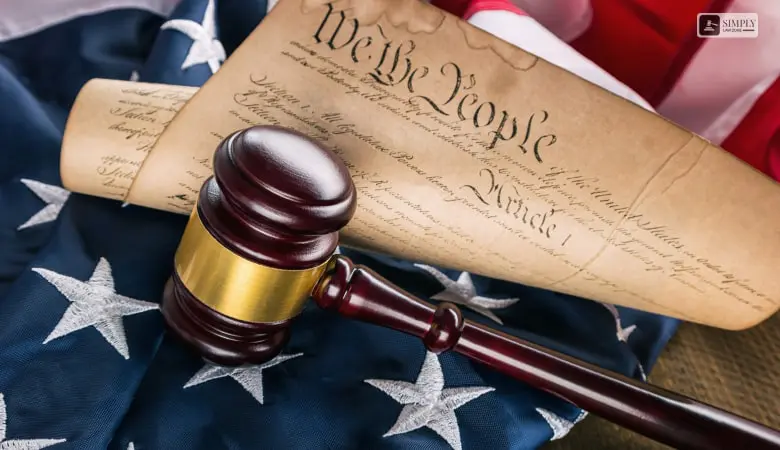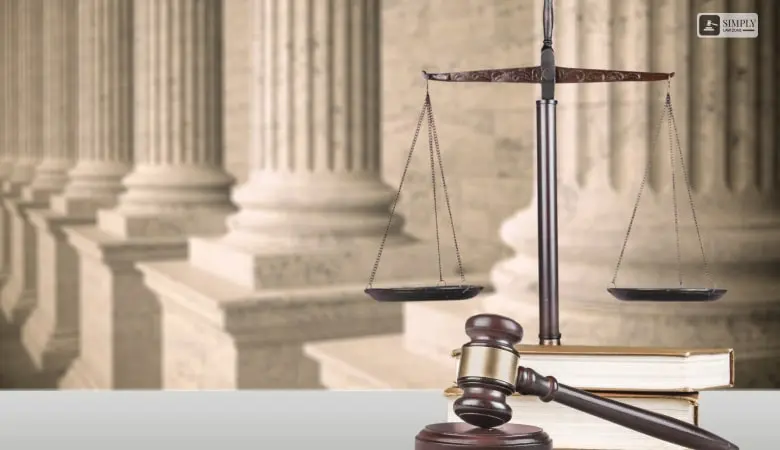
Article 4 Of the US Constitution lays down provisions regarding the relationship between the various states of the USA. It establishes the procedure by which new states can become a part of the US.
The Article mandates the role to be played by the US government in ensuring law and order in case of invasion or other breaches of the peace. Article 4 of the US Constitution has been known to outline the relationship between states and the relationship between states and the federal government.
The Article has been divided into 4 Sections which contain significant clauses like the full faith and credit clause, the privileges and immunities clause, the extradition clause, and the like.
So let’s get into the details!
Importance of the US Constitution
Picture it as the North Star, unwavering and constant, providing direction to the ship of state through the tempests of time. Let’s delve into the captivating importance of the U.S. Constitution.
1. Architect of Freedom:
Imagine a blueprint for liberty, a design that enshrines the fundamental freedoms of every American. The Constitution serves as this architectural marvel, laying out the framework for individual liberties, from the freedom of speech to the right to bear arms. It’s not just a set of rules; it’s the foundation of the American promise of freedom.
2. Guardian of Rights:
In the dazzling mosaic of diversity that is America, the Constitution stands as the guardian of individual rights. It’s the unwavering defender against encroachments on personal freedoms, ensuring that no matter who you are or where you come from, your rights are sacred and protected.
3. Arbiter of Justice:
Imagine the Constitution as the wise judge presiding over the courtroom of the nation. It establishes the judiciary, defining its powers and jurisdiction. Through this, it becomes the ultimate referee, interpreting the laws and ensuring justice is blind, impartial, and fair.
4. Living Document:
The brilliance of the Constitution lies in its adaptability. It’s not frozen in the past; it’s a living, breathing document that evolves with the times. Through amendments, it grows to embrace progress, reflecting the changing values and aspirations of the American people.
5. Balancer of Power:
In the dance of governance, the Constitution orchestrates a delicate ballet of checks and balances. It divides power among the three branches—executive, legislative, and judicial—preventing any single entity from becoming too mighty. It’s the guardian against tyranny, ensuring that no one wears the crown of absolute authority.
6. Unifier of a Diverse Nation:
Within the sprawling mosaic of states, cultures, and beliefs, the Constitution serves as the unifying force. It binds the states into a cohesive whole, establishing a federal system that allows for both unity and diversity, providing a common ground for the pursuit of happiness.
7. Time-Tested Stability:
In a world of tumultuous change, the Constitution stands as a rock of stability. It has weathered the storms of history, providing continuity and stability to a nation in flux. It’s the anchor that prevents the ship of state from drifting into the turbulent seas of uncertainty.
8. Inspirational Compass:
Beyond its legal prowess, the Constitution is an inspirational compass. It articulates the lofty goals of “We the People,” inspiring generations to strive for a more perfect union. It’s the North Star that beckons America toward the ideals of justice, tranquility, and liberty for all.
The U.S. Constitution is not merely a relic of the past; it’s the beating heart of a nation, a guiding light that illuminates the path toward the American dream. It’s a reminder that, in the words of the Preamble, it is “We the People” who hold the pen to script the story of a more perfect, more just, and more enduring union.
Section 1 Article 4 Of The US Constitution

This Section consists of the very significant Full Faith And Credit Clause
Full Faith And Credit Clause
A clause quite similar to this had existed in the Articles Of Confederation. The clause states that every other state under the territory of the United States shall respect the public laws passed, rules and regulations made, records maintained, and judgments passed by the Courts of law.
That being said, the jurisdiction of Courts is a concern when applying this clause. Judgment passed by the Court of law in one state may not stand in other states.
The Courts are however conscious while making these decisions so as to not infringe upon other states.
In the year 1790, sometime after the ratification of the Constitution, Congress deemed it fit to enact this clause.
In the case of Mills v. Duryee(1813) the Supreme Court held that if any record enjoyed complete faith and credit and is treated as record evidence, it shall enjoy the same position in every other Court.
Such cases have also been noted where the state has been obligated to carry out judgments from other state courts even if they have been inconsistent with the policies of that state.
The full faith and credit clause has been known for its wide application to family law. It has been used in cases of Orders of Protection, such as restraining orders or other protective orders.
In the case of E.L. v. V.L.(2016), the Supreme Court held that Alabama must consider the same-sex decree passed in Georgia by the virtue of the Full Faith and Credit Clause.
Section 2 Article 4 Of The US Constitution

This Section deals with the rights granted to the citizens and their extradition rights.
Clause 1
Also known as the Privileges and Protection clause, it stipulates that the rights of the residents of one state are to be respected and protected in other states as well.
The right to travel across states also comes under the purview of this clause.
The Privilege clause or the Comity clause is quite similar to one of the Articles of Confederation. It granted citizens, paupers, beggars, and vagabonds similar rights and privileges across the nation.
In the landmark judgment of Corfield v. Coryell(1823), the federal circuit court listed the privileges which were to be enjoyed nationwide.
No discrimination was to be made against-
- Protection by the government.
- Rights to life and liberty.
- Rights of citizens to interstate travel and residence.
- Travel and residence could be for the purpose of :
- Trade.
- Agriculture.
- Professional pursuits.
- Rights to the writ of Habeus Corpus.
- To any legal action in Courts.
- To buy, hold, or sell a property.
- To pay similar taxes and enjoy similar exemptions as other citizens.
Clause 2
Do you remember how attempts made by the DEA to extradite drug cartel leader Pablo Escobar were portrayed in Netflix’s drama series, ‘Narcos’?
The Extradition Clause- A resident of any state being convicted of a felony, a crime, or treason when found in other states is to be returned to the jurisdiction where he is to be tried by law.
The convict is to be extradited to his jurisdiction on executive orders from the respective state. The offenses which warrant extradition may be small and petty or major ones.
In the case of Kentucky v. Dennison(1860), it was held that the Writ of Mandamus shall not be exercised to bring back fugitives into their jurisdiction. The verdict of Puerto Rico v. Branstad overturned that decision. Fugitives do not usually enjoy the right to contest an extradition proceeding.
Clause 3
The fugitive sales clause also called the fugitives from labor clause stipulates extradition provisions as to one who is serving as a slave or indebted labor. The clause states that such slave is to be returned to their master when they run away.
The 13th Amendment which abolished slavery in the US has rendered this clause useless. In the case of Somerset v. Stewart(1772), it was held that an American slave who had run away and escaped to Great Britain was a free citizen. Britain had not legalized slavery, hence the decision was not in breach of any law.
Section 3 Article 4 Of The US Constitution

This Section lays down laws pertaining to the addition of new states to the nation. It also contains the Property Clause.
Clause 1
This clause is known as the Admission Clause. This clause authorized Congress to add states other than the initial 13 states to the Union. The Constitution was enacted in 1788. It began with the first 13 states and 37 more have been added to the list ever since.
When a certain region has increased in population, it requests the Federal government to grant statehood. After consideration, if Congress deems fit, it might pass an act enabling such efforts.
The concerned region has to come up with a state Constitution.
It is prohibited to form a new state from the already existing states without the consent of all the affected states and Congress.
In the case of Lessee of Pollard v. Hagan (1845), the Supreme Court upheld that equality of States was essential in the case of admission of new states.
Clause 2
This clause is commonly known as the Property Clause. It states that the US government has the right to manage and govern all territory that is a part of the United States. A considerable portion of land is owned by the United States government in the form of parks, wildlife sanctuaries, and large stretches of public lands in general.
Section 4 Article 4 Of The US Constitution

This Section consists of two clauses, the guarantee clause and the Protection from invasion and domestic violence clause.
Clause 1
Clause 1 of Section 4 guarantees that the US be maintained as a Union of states and a Republican form of government. The Guarantee clause, as it is commonly known, ensures that government functions under republican principles.
The consent of the people governed has been given utmost importance.
In the case of Luther v. Borden, the responsibility to establish republican guidelines for the nation was left with Congress.
Clause 2
This clause stipulates that it is the duty of the United States government to protect the states from invasion and from domestic violence. This clause was put to use by President Wilson when he sent troops during the War at Colorado Coalfield.
Key Takeaways
Unity in Diversity:
Article 4 reflects the Founding Father’s vision of a united and cooperative federation of states, ensuring that others respect the actions and decisions of one state.
Rights on the Move:
By guaranteeing citizens’ rights as they travel from state to state, Article 4 promotes a sense of national unity and prevents discrimination based on geographical location.
Orderly Expansion:
The guidelines for admitting new states provide a structured approach to the growth of the Union, maintaining order and coherence.
Federal Authority:
Through its provisions on federal property and the guarantee of a republican form of government, Article 4 underscores the authority and responsibilities of the federal government over the states.
While Article 4 might not be as frequently cited as some other sections of the Constitution, its role in fostering interstate cooperation and maintaining the harmony of the Union cannot be overstated. It’s a reminder that the strength of the United States lies not just in its individual states but in its ability to function as a united and cooperative whole.
Conclusion
The importance of Article 4 of the US Constitution lies in the fact that it protects the basic federal structure of the US government. It keeps the relationship between states and states and the union government strong. It guarantees that peace is maintained and states are protected in times of invasion and domestic violence.
A strong federal structure is the backbone of the United States of America. Thus, Article 4 has its niche in the successful functioning of the US government.
Read Also:


